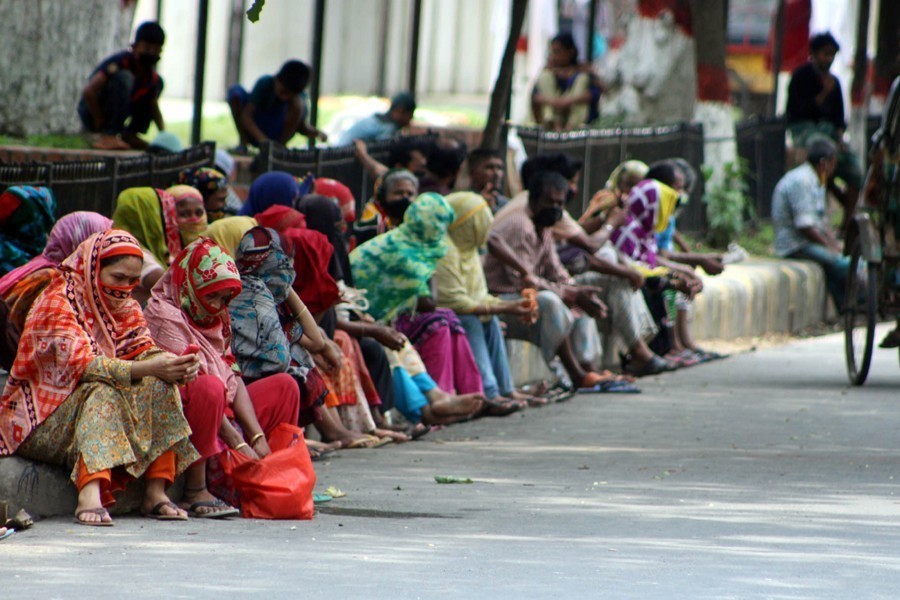Around 6.0 million people slide down below the poverty line in the country every year due to higher personal costs for availing healthcare services amid poor budgetary allocation for health, according to a keynote paper.
A person in Bangladesh has to spend on an average 67 per cent of the required money from own pocket - the highest among the South Asian nations, it also said.
Bangladesh's per capita expenditure for healthcare sector is as low as $32 only, which is the lowest in the region, as per the paper.
The keynote paper was presented at a virtual discussion, titled 'National budget: health and environment perspective', organised by the Doctors for Health and Environment (DHEN), on Wednesday.
DHEN Joint Secretary Dr M H Faruki presented the keynote paper at the event, with its President Prof M Abu Sayeed in the chair.
According to the keynote paper, the abject condition of Bangladesh's healthcare sector has been starkly unearthed before the international communities.
Though slightly increased in numerical figures, actual allocation for health sector is less than one per cent of the GDP in real terms, the paper said.
As per the directive of the WHO, the paper noted, health sector should get 15 per cent allocation of the national budget and it should be five per cent of the GDP.
The doctors' platform also suggested that the government should aim to vaccinate 10 million people per month instead of its target of 2.5 million during the same period.
The platform also underscored the need for increasing focus on conservation of nature as it is directly connected with health.
The DHEN urged the government to restructure the health sector by increasing allocation, and ensure quick trial and exemplary punishment for the corrupt people in the sector, aiming to establish a better and environment friendly treatment ecosystem.
Speaking on the occasion, former adviser to the caretaker government Hossain Zillur Rahman said health sector was a vital one, impacting many other aspects of human lives.
Referring to the keynote paper, he said there was severe shortage of adequate skilled manpower in the country's healthcare sector.
"Large healthcare infrastructures like 500-bed hospital cannot provide desired services due to lack of manpower while there is unemployment in the country," he said.
Corruption, irregularities and negligence in the country's healthcare sector need to be addressed duly, he added.
Distinguished Fellow at the Centre for Policy Dialogue (CPD) Professor Mustafizur Rahman laid emphasis on establishing recycling industries in a bid to protect the environment, which impacts both the economy and health.
DHEN President Prof M Abu Sayeed said the doctors' platform had been urging the government to establish a public health commission, aiming to increase the accountability and transparency in the sector.
He also underscored the need for defining strategy for a quality growth that doesn't harm the environment and ecosystem.
Former president of the Bangladesh Medical Association (BMA) Dr Rashid-E-Mahbub and former president of Bangladesh Federal Union of Journalist Monjurul Ahsan Bulbul, among others, spoke on the occasion.
DHEN research secretary Dr M Golam Azam moderated the discussion.


